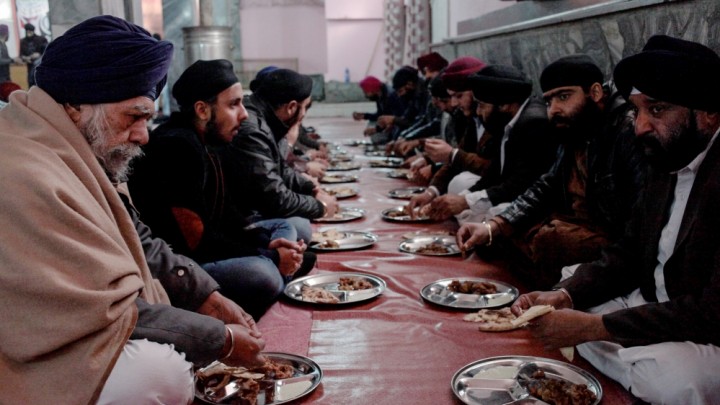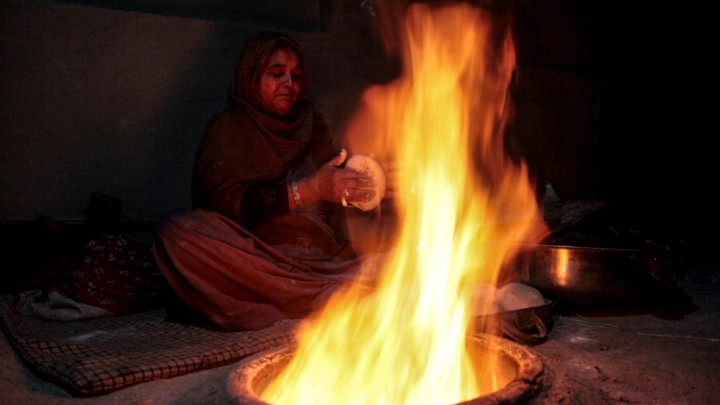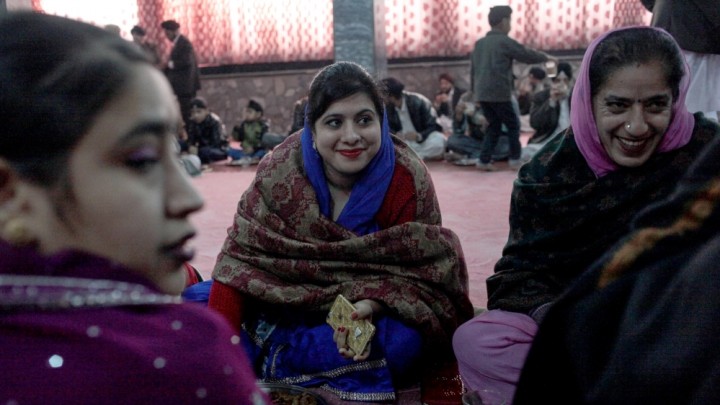Afghanistan’s once thriving Sikh community is facing extinction.
Official census figures do not exist, but according Rawali Singh, deputy head of the Afghanistan Sikh and Hindu Community Council, about 40 years ago, an estimated 50,000 Sikh and Hindu families lived in Afghanistan.
That number has shrunk to around 363 families, the vast majority of whom are Sikhs, and has steadily declined in recent years, largely due to persistent social discrimination and prejudice.
In Kabul, only 102 Sikh families remained, said Rawali, and in the past year alone, more than 150 families have left Afghanistan.
In other areas of the country, such as Jalalabad and Kandahar, where Afghan Sikhs once lived in large numbers, at most only a few dozen families remain.
Afghanistan’s constitution formally enshrines Islam as the country’s official religion. But it also protects the rights of Sikhs, and members of other faiths, to practice their religion freely.
“On paper we have equal rights, but I can’t go out at night,” said Kuljeet Singh, a shopkeeper. Like many of the men who live at the “gurdwara” (the Sikh “temple” / community-house), Kuljeet sent his family to live in India a few years ago, remaining behind only to take care of his business.
In line with his beliefs, Kuljeet always wears his distinctive turban and other Sikh religious articles of faith, known as kakkar, which in Afghanistan, he said, makes him vulnerable to beatings and harassment.
“With these I cannot hide,” he said, pointing to some of the kakkar: a metal bangle, uncut beard and a small curved sword worn strapped to his body.
The most significant Sikh exodus from Afghanistan occurred during the civil war (1989-1996) and during the subsequent Taliban rule (1996-2001), during which thousands, like many other Afghans, sought refuge in neighboring countries.
Life under the Taliban was a particularly dark time. Officially, Taliban commanders were ordered by their leadership to respect Sikh and Hindu communities, on the condition they didn’t proselytize and paid jizya, the quranic tax imposed on non-Muslims. But they also required Sikhs to publicly identify themselves, by wearing yellow patches on their breast pocket or armbands, and to mark their homes and businesses with yellow flags.
They were allowed to continue daily prayers at the “gurdwaras” so long as they couldn’t be heard from the street, but it also wasn’t uncommon for errant Taliban to harass or beat them, Kuljeet said.
Even after the fall of the Taliban, however, and promises by both the Karzai and Ghani governments to do more to protect their communities, each year the number of Sikh families continues to shrink.
“Before the wars we were integrated in local communities,” said Sivender. “But with the passing of time the prejudice against us has increased. People were really radicalized by the civil wars and the Taliban.”
Some in Afghanistan have been particularly intolerant of Sikhs cremating their dead, a practice forbidden in Islam. Protesters have interrupted funeral processions by throwing stones and shouting insults, forcing the Sikh community to request police protection so they can mourn in peace.
During the civil war, local commanders from different sides illegally confiscated housing and land from many Sikhs, and Muslims were also discouraged from doing business with them, impoverishing the minority.
Despite dwindling in size, Kabul’s Sikh community has retained a strong sense of community. The “gurdwara” rooms, which once stored hundreds of bags of flour and rice to feed thousands of worshippers, are now simple bedrooms for dozens of Sikhs with nowhere else to go.
The residents rarely eat outside the “gurdwara”. While leaders say anyone is welcome, they rarely see visitors from outside their community, apart from the occasional official or foreigner.
Some of the community members are vegetarian and concerned about the use of animal products in food, Surjeet explained.
Meat is not allowed to be consumed at the “gurdwara” but some do eat it, of course only if it is slaughtered according to Sikh custom (by “jhatka” system, ie with a quick and painless cut).
With all meat sold in butchers and served in restaurants in Afghanistan prepared according to Islamic “halal” principles, the Sikh community will only eat meat they prepare themselves.
“We live together, we help each other and we prepare the food together,” said Mukesh. “And we eat together, here in God’s house.”
That day was particularly special for Kabul’s Sikh community. It was the first day of their calendar month, when almost all the remaining Sikhs traditionally come from across Kabul for morning prayer and the langar, but it was also the anniversary of the martyrdom of Guru Tegh Bahadur, the 9th of the 10 Sikh gurus.
In the late 17th century, Guru Tegh Bahadur, a Sikh from Amritsar in India’s Punjab state, was sought out by a Hindu community to intervene in the Mughal Emperor Aurangzeb’s efforts to forcibly convert them to Islam.
When the guru appealed to the emperor, he was asked to convert or perform a miracle. He refused, and was arrested and publicly executed in 1675 in Delhi on the emperor’s orders.
“Guru Tegh Bahadur was an exceptional man,” said Mukesh as he handed out milky, sweet cups of masala chai, with crushed spices floating on the surface. “He saw all people as equal, everyone as a human being.”
“The message of today is tolerance,” added Kuljeet. Even if their community faced discrimination, he said, “if we retaliate when they attack us, we become just like them”.
Sikh children commonly face taunts and discrimination in Afghan schools, resulting in many of the remaining families to send them to be educated abroad.
Kuljeet, who can trace his Afghan lineage back four generations and served in the Afghan army for seven years, said that while he “feels Afghan in his heart”, his children are much happier living in India.
One day, Kuljeet said, his nephew returned from school devastated. The school had organized an official ceremony for Teacher’s Day, and the school principal decided his nephew would not be allowed to participate.
The boy wasn’t a real Afghan, the principal said, and he would have to wait outside, by himself, until the party was over.
“He was humiliated,” said Kuljeet. “He said that was enough; he wasn’t going back to school again. The entire family then decided we had to send all our children to India.”
From an inspiring article of Al Jazeera: Inside the little-known kitchen of Afghanistan’s Sikhs


